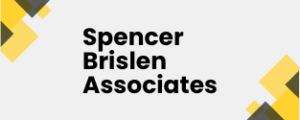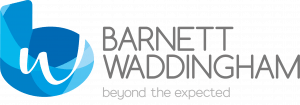Why did you choose this profession?
Towards the end of my university programme, I began to consider my career options and opportunities. I have always enjoyed working with numbers, conducting data analysis and problem solving. As such, I was looking for a client-facing role that would allow me to utilize these skills. Actuarial consulting piqued my interest, and I had several discussions with expert actuaries to understand the profession. I found it interesting and unique, because it provides me with the opportunity to use analytical skills to advise clients about actuarial-related issues. Choosing to become an actuary was easy when I considered the availability of opportunities for growth, improvement and diversification within the industry.
How did it tie in with your overall career plans?
My educational background in engineering provided me with a broad knowledge of applied mathematics, and an interest in translating this knowledge into data analysis. Regarding my career options, I knew that I wanted to work in an industry and organisation that provides opportunities for growth and upscaling. Currently, my major goal is to acquire all the necessary certifications and become a qualified actuary. This will enable me to specialise in specific areas of actuarial consulting and allow me to become a thought leader in the industry.
Do you have any advice for anyone wanting to enter the profession?
My advice for anyone exploring actuary consulting would be that they have an interest in using their mathematical skills. It’s easier to apply for actuarial consulting roles when you have a clear understanding of the career path and its requirements. This will help you relate your professional skills to the duties of a consulting actuary and will put you in a better position to promote yourself. Engage with other professionals via LinkedIn and conduct your own research to understand the skills required for your career path. I would also advice that you participate in internship opportunities. These positions will help you gain preliminary experience in actuarial consulting and help you to decide if the role will be a good fit for you.
What does your current role involve?
I work in the risk and modelling team at Aon. In my team, I assist in ensuring that companies are fully funded to pay out their pension schemes to members. This involves modelling their assets to accommodate for changes in inflation/interest rates by doing Liability Driven Investment (LDI) monitoring, Asset Liability Management, Cashflow benchmarks and lots more! My role also involves liaising with clients to understand their approach to risk and investment, assessing the demographic characteristics of their pensioners, and preparing reports accordingly.
What are your future plans?
Currently, my major goal is to become a certified actuary. My plan is to attend the necessary classes, utilise materials and resources, and adequately prepare for all levels of the certification examination. I’m also focused on improving my skills and capacity and learning from experienced colleagues in the industry. Working at Aon provides me with the opportunity to diversify my career options within the company, and I am excited to see where my love for actuarial consulting takes me.
A day in the life of a consulting actuary?
I work with the risk and modelling scheme team, in the pensions department at Aon. My team are responsible for analysing risks and evaluating the pension schemes of our clients. During office hours, I review client data and use various tools to analyse projections of assets or liabilities, regarding their pension scheme. I work with my colleagues in preparing reports and recommendations based on our findings.
An important aspect of my job is performing data analysis using different financial and statistical modelling software, and preparing reports based on these results. Whenever I encounter a particularly challenging task, I like to ask questions and seek advice from my colleagues.





